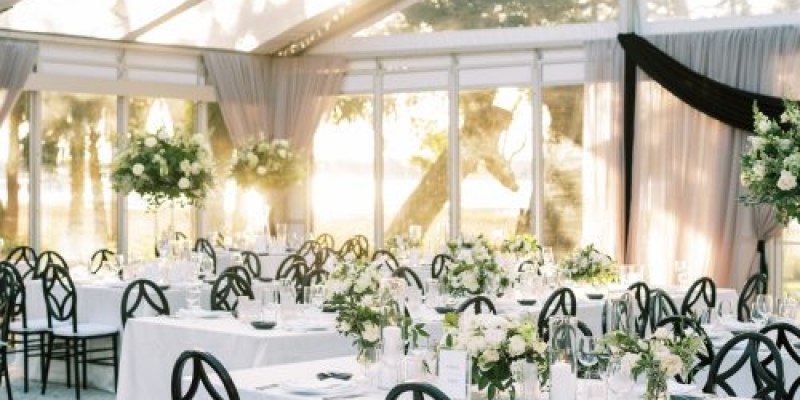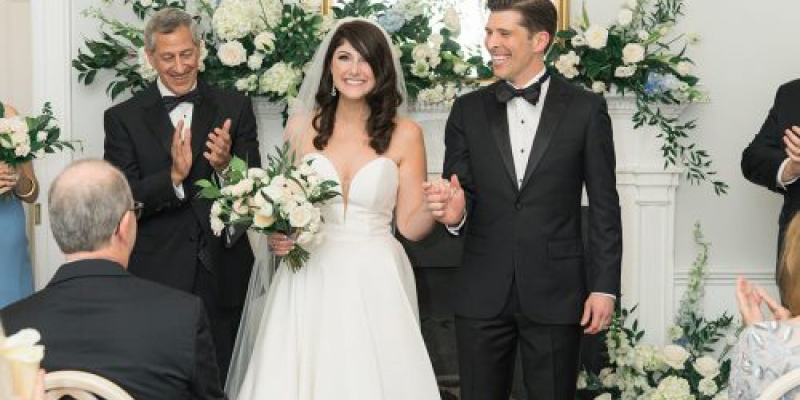
In the past year, two of Charleston’s more popular wedding sites shut down. One, a new kid on the block, closed due to financial mismanagement. The other, a tried-and-true island resort favorite, burnt to the ground. In the wake of both, couples scrambled to relocate and reorganize likely one of the most expensive—and orchestrated—days of their lives. (The Post and Courier reports that weddings in the Charleston area average $35,000, the biggest portion of which goes to paying for the venue.) Here’s how silver linings appeared, and how to protect yourself.
Bad View!
Jamie Mastucek was one half of several couples out of their $5,000 (or more) deposits and fees when The Vue at Ripley’s Point was foreclosed upon in May. Luckily, Jamie says, the site’s former event planner, Karen Porreca, saw to it that her wedding, and every last other one Karen booked there, was salvaged. Karen, although out thousands in compensation, apparently just couldn’t let so many couples down. She outed the company’s misdeeds to The Post and Courier and the story was splashed across local news stations, too. The result? Area wedding industry folks rallied to the couples’ causes with discounted and donated venues and services. Now that the dust has settled from the foreclosure fallout, Jamie and her fiancé are set for their Big Day, and Karen? She started Simply Eventful, her own event firm here in town.
Chart a New Course...
Most weekends, the old River Course Clubhouse at Kiawah was booked with one or another happy couple saying their “I dos.” That ended abruptly in March 2010 when the place burnt down, leaving scores of weddings in the lurch. Scrambling to find other locations for the ceremonies and receptions, events manager Jeri St. Germain teamed with local wedding planners to find solutions on Kiawah as picturesque and luxe as their first choice. That translated to tented pavilions overlooking waterways, and more. As for the clubhouse today? It’s been rebuilt, more glorious than ever.
Insure Yourself
Contracts are good, but if a business goes under, you’re out of luck for compensation. Best bets? Either gamble with contracts alone—don’t put down any deposits without these—put your charges on a credit card (you can sometimes contest charges if the service is not rendered), or opt for wedding insurance. To get coverage, a month before your wedding day, make a list of expenses (deposits and total payments), including the venue, florals, gifts, jewelry, wedding accessories, and possible financial damages incurred by postponement. Take the list to a local insurance agency for rates. Depending on what you elect to cover, your premium can range from $100 to thousands of dollars, but can protect you that much more.







